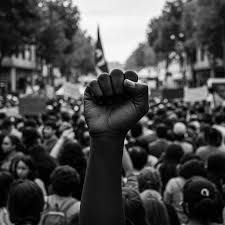OUMOU SANGARE – TIMBUKTU: REVIEW
- Bernard Zuel
- May 26, 2022
- 3 min read

OUMOU SANGARE
Timbuktu (World Circuit)
THESE DON’T COME AROUND that frequently, new original studio albums from the great Wassoulou singer/songwriter/businesswoman/activist, Oumou Sangare, so there tends to be a little more weight to each decision she makes.
The last time we heard from her, in 2017, her album Mogoya, went further than ever before into electronic sounds and western studio tones, leaning into more of a dance-focused collection. You would hardly have called it an electronic pop record or anything like that – it retained not just connections to but deep roots in Mali’s Wassoulou region, whose music she’d spent nearly 30 years bringing to us – but the sonic palette thickened somewhat, tempos ticked upwards and the emotional palette felt brighter.
Timbuktu modifies, or varies maybe, that approach. It’s still keen, possibly even more so, on connecting western styles into play with her traditions, but blending them more organically than electronically: n’goni player Mamadou Sidibe’s fluidly brittle tone remains central to the sound and the balafon of Balla Kouyate is a counterpoint, but against it at times are dobro and slide guitar, from co-producer Pascal Danae, while the rhythms flow from skin and wood rather than pad and keyboard.
And just as importantly, it reflects a more complex, sometimes sombre, attitude, stemming both from Covid circumstances (stranded in the USA when borders closed, she wrote the bulk of the album in Baltimore) and the continuing upheavals and dislocations in Mali (Timbuktu, after all, is a disputed city still scarred by claim and revenge).
In fact, that title track carries a mix of sadness and perseverance, old and new that characterises much of the record: electric bass and guitar bringing low throb and empty road keening; n’goni maintaining constant progress in the middle, the backing vocals teetering on resignation but hinting at anger, and Sangare resolute and steady through it all. Probably sadder is Demissimw, the lead vocal picking its way through the low brushes of various stringed instruments, the wind gusting up occasionally with the chorus of female voices (always Sangare’s preferred echo and response) floating through with that ever landing, and loss ever present.
While not as subdued, Kanou is a track which might have you wondering whether Mali has a tradition of cowboy serenades, and not just because the n’goni is an ancestor of the banjo featured here. The slow loping rhythm and night sky wistfulness touches the American West as much as the African West, and the overriding sense is of being alone and watching stars, not bars.
If there are bars you might find them in the opening track, Wassulu Don, which has the chug of southern blues in crosscurrents with a Malian circular dance, everything moving moving moving and a fuzzed up guitar chasing it, or Sira, where energy flows back and forth in a lighthearted dance. But that energy is most freely expressed in Kele Magni, where the balafon, all spritely leaps and jaunts, banters with electric guitar, countering each sinuous probe with buoyancy.
It may be telling, at least as an indication of the mood in the making of this record but I think also as a symbol of the messages within it, that the album ends with the traditional song (the only non-original here), Sabou Dogone. Here we find Sangare almost stately in her singing, poised above a rich and warm vocal arrangement of both male and female voices while a guitar in the semi-distance pieces the clouds.
It’s not despairing though it is touched by the forlorn, it is turning towards a light but isn’t freely riding on hope, and yet it carries itself with a sense of grace, a close quarters beauty. Most of all, it stays in echoes within you well after it has stopped.








Comments